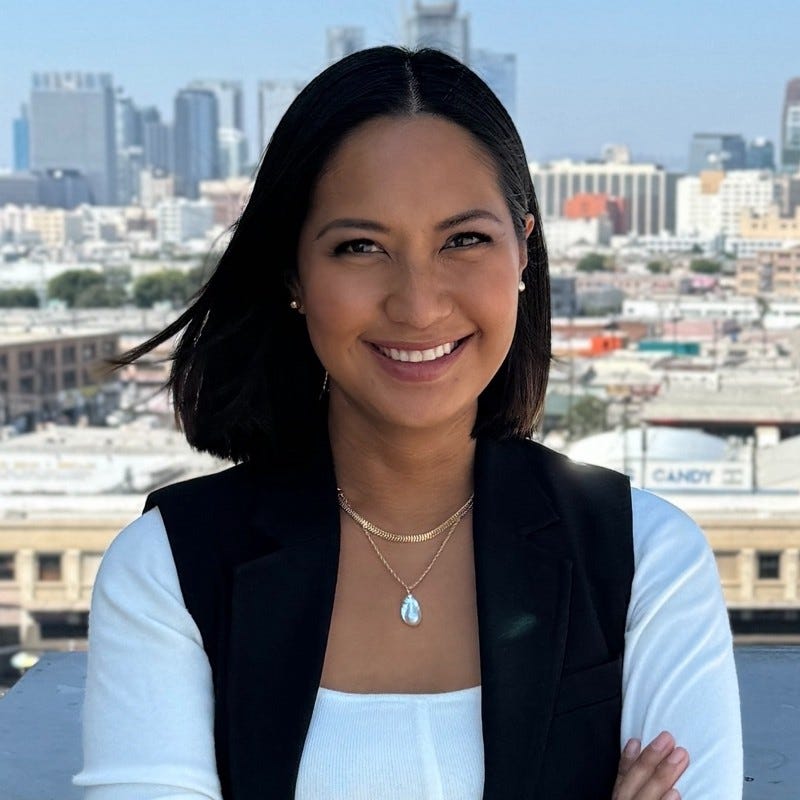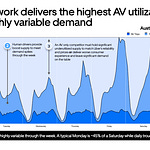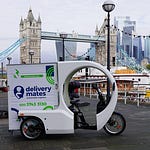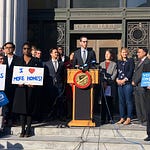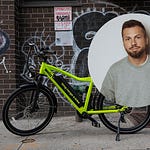Startup founders often believe so deeply in the mission of their business that they struggle to see how the world could exist any other way. They adopt a mindset akin to “once my product breaks through, all the naysayers will understand they were wrong to doubt its importance.” Or to borrow a phrase from Mark Zuckerberg, they “move fast and break things.”
That may work when it comes to scaling a social media app or SaaS platform, but things are a bit different for products that don’t live solely on your phone. Governments and policymakers set up the regulations that govern our mobility options in response to real problems observed in the past. And as frustrating as that may be to some founders, in the end they’ll usually get better results from working with cities, as opposed to against them.
That’s why, for the latest edition of Zag Talk, I was so excited to sit down with Sam Roxas, co-founder of Common Good Strategies, to talk about how new mobility startups can better engage with the public sector. Before opening up her own policy shop, Samantha worked for the City of San Francisco, the SF Board of Supervisors, congressional leaders and SPUR, then jumping over to startups like WeWork, REEF and Replica.
Beyond Samantha’s sage advice, Greg and I are also joined by Zag editor Ben Hubbard, as we go deep into the past week’s most pressing industry updates.
HOT INDUSTRY NEWS & GOSSIP
So much for states’ rights… The GOP-led Senate just voted to overturn California’s recent law that would have banned the sale of new gas-powered vehicles after 2035. In doing so, they’ve upset decades of regulatory tradition that lets CARB combat smog and carbon emissions in the Golden State (about a dozen other states follow CA’s regulatory example as well.) Perhaps CA legislators will now have to pull another lever, like ratcheting up the gas tax every year?
10 billion deliveries! DoorDash just hit an impressive milestone. The 3PD, and its subsidiaries like Wolt, just completed their ten billionth delivery. That’s a lot of food (maybe a trillion french fries?) and a lot more delivery vehicles on the road, but still a fraction of what Amazon moves in a year.
Tuber? Talk about peer-to-peer-to-peer… Turo’s p2p car rentals are now available in Uber’s app. Turo’s been looking to boost growth since pulling its IPO, and while I think this could add a few tens of millions in GMV, that’s unfortunately still only enough to boost sales a few extra percentage points. As an aside: when we were starting Turo a decade and a half ago, sometimes car owners would ask us if, instead of letting strangers borrow their cars, could they perhaps offer to drive the strangers around? Unfortunately, we thought that was too crazy of an idea…
Mapping Boston’s tangled roads: Boston’s made progress mapping its crazy curbs. Thanks to a SMART grant, the city’s lidar-scanning its streets, so it can better map where PUDO, loading, no-parking and similar zones are and should be.
Two cool jobs! Serve Robotics is looking for a Government Affairs Manager - West. The City of Seattle needs a Curbside Associate Planner (Associate Transportation Planner.)
Riding high: American public transit ridership hit a new post-pandemic high, with the APTA reporting that usage is now back at 85% of its 2019 levels. Ridership has rebounded particularly well in NYC, DC and LA, while other regions like the SF Bay, Minneapolis, Boston and Chicago have struggled with funding, labor, and weak RTO in the CBD.
Airpool: As mentioned last week, the product wars between Uber and Lyft seem to be heating back up. Now it’s Lyft’s turn to roll out a recession-friendly update: shared rides at airports. Lyft previously did away with ride pooling in 2023, but is now bring it back to airports serving Austin, Boston, Chicago, Denver, Las Vegas, Los Angeles, New Orleans and San Francisco.
The usual geography… Crunchbase takes a look at which universities educated founders who raised money in the past year. In aggregate, the ol’ coastal elites continue to dominate, with schools in Boston, SF, NYC and LA topping the charts.
Inside the mind of Musk: Bloomberg scored an interview with Elon Musk, and it’s a pretty illuminating look at how the man thinks. Besides calling the Editor at Large an “NPC” (non-playable character,) the world’s richest man contests that his auto sales are falling outside of Europe, doesn’t plan to get into drones, thinks the world is over-regulated except for when it comes to AI, and seems fixated on imagined anti-white racism.
A few good links: CA HSR Authority looks to partner with private sector. CA Gov. Newsom seeks to extend cap and trade law, direct more $$ to HSR. Minnow Technologies acquires DeliverZero (you may recall their founder talking about sustainable delivery packaging at Curbivore 2024.) Echo Park ghost kitchen causes traffic headaches. WA Governor signs law allowing cities to create slow / shared streets.
Until next week!
- Jonah Bliss & The Curbivore Crew



